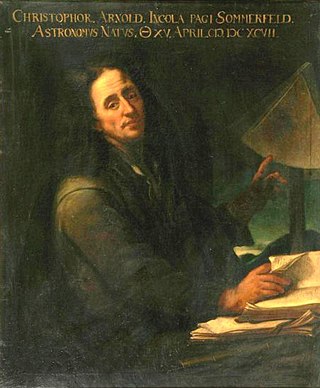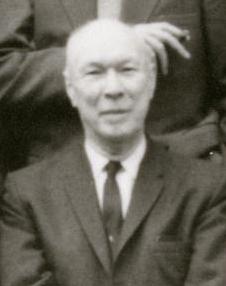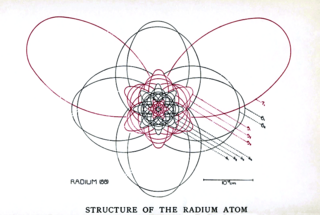Sommerfeld as a surname may refer to:
Sommerfeld as a place may refer to:
Sommerfeld may also refer to:
Darwin most often refers to:

Arnold Johannes Wilhelm Sommerfeld, was a German theoretical physicist who pioneered developments in atomic and quantum physics, and also educated and mentored many students for the new era of theoretical physics. He served as doctoral supervisor and postdoc supervisor to seven Nobel Prize winners and supervised at least 30 other famous physicists and chemists. Only J. J. Thomson's record of mentorship offers a comparable list of high-achieving students.
Arnold may refer to:
Wiener may refer to:
Paul Peter Ewald, FRS was a German crystallographer and physicist, a pioneer of X-ray diffraction methods.

Paul Karl Ludwig Drude was a German physicist specializing in optics. He wrote a fundamental textbook integrating optics with James Clerk Maxwell's theories of electromagnetism.
Mercator may refer to:
Zwicky is a surname. Notable people with the surname include:

Christoph Arnold was a German farmer and amateur astronomer.

Heinrich Johann Welker was a German theoretical and applied physicist who invented the "transistron", a transistor made at Westinghouse independently of the first successful transistor made at Bell Laboratories. He did fundamental work in III-V compound semiconductors, and paved the way for microwave semiconductor elements and laser diodes.
Erwin Richard Fues, was a German theoretical physicist who made contributions to atomic physics and molecular physics, quantum wave mechanics, and solid-state physics.

Helmut Hönl was a German theoretical physicist who made contributions to quantum mechanics and the understanding of atomic and molecular structure.

William Vermillion Houston was an American physicist who made contributions to spectroscopy, quantum mechanics, and solid-state physics as well as being a teacher and administrator. He became the second president of Rice University in 1946.
Josef Meixner was a German theoretical physicist, known for his work on the physics of deformable bodies, thermodynamics, statistical mechanics, Meixner polynomials, Meixner–Pollaczek polynomials, and spheroidal wave functions.
Fritz Eduard Josef Maria Sauter was an Austrian-German physicist who worked mostly in quantum electrodynamics and solid-state physics.
Friedrich Arnold "Fritz" Bopp was a German theoretical physicist who contributed to nuclear physics and quantum field theory. He worked at the Kaiser-Wilhelm Institut für Physik and with the Uranverein. He was a professor at the Ludwig Maximilian University of Munich and a President of the Deutsche Physikalische Gesellschaft. He signed the Göttingen Manifesto.

The Bohr–Sommerfeld model was an extension of the Bohr model to allow elliptical orbits of electrons around an atomic nucleus. Bohr–Sommerfeld theory is named after Danish physicist Niels Bohr and German physicist Arnold Sommerfeld. Sommerfeld argued that if electronic orbits could be elliptical instead of circular, the energy of the electron would be the same, except in the presence of a magnetic field, introducing what is now known as quantum degeneracy.
In mechanics, Sommerfeld effect is a phenomenon arising from feedback in the energy exchange between vibrating systems: for example, when for the rocking table, under given conditions, energy transmitted to the motor resulted not in higher revolutions but in stronger vibrations of the table. It is named after Arnold Sommerfeld. In 1902, A. Sommerfeld analyzed the vibrations caused by a motor driving an unbalanced weight and wrote that "This experiment corresponds roughly to the case in which a factory owner has a machine set on a poor foundation running at 30 horsepower. He achieves an effective level of just 1/3, however, because only 10 horsepower are doing useful work, while 20 horsepower are transferred to the foundational masonry". First mathematical descriptions of Sommerfeld effect were suggested by I. Blekhman and V. Konenko.

Lectures on Theoretical Physics is a six-volume series of physics textbooks translated from Arnold Sommerfeld's classic German texts Vorlesungen über Theoretische Physik. The series includes the volumes Mechanics, Mechanics of Deformable Bodies, Electrodynamics, Optics, Thermodynamics and Statistical Mechanics, and Partial Differential Equations in Physics. Focusing on one subject each semester, the lectures formed a three-year cycle of courses that Sommerfeld repeatedly taught at the University of Munich for over thirty years. Sommerfeld's lectures were famous and he was held to be one of the greatest physics lecturers of his time.